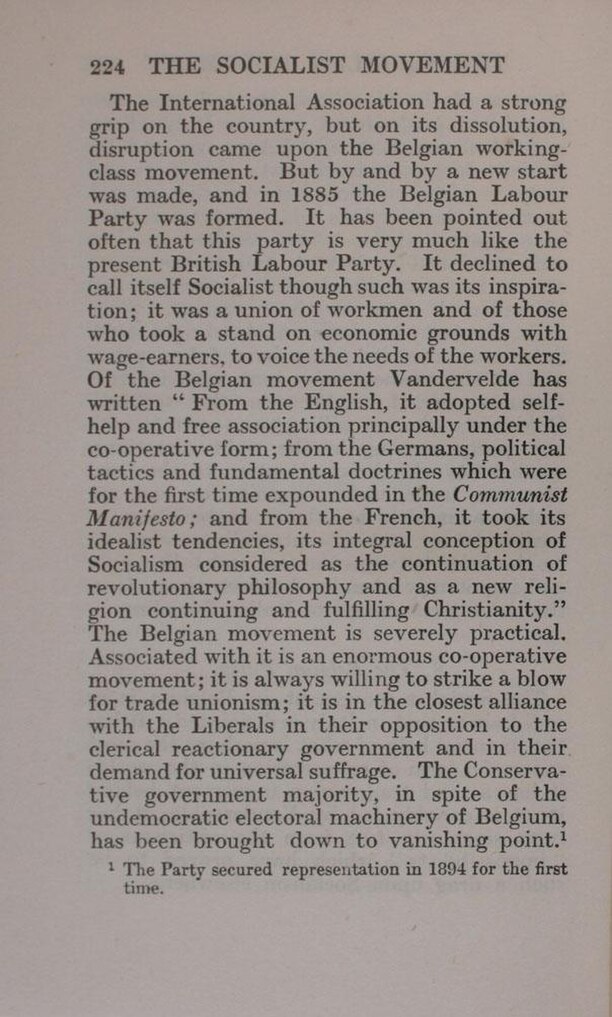The International Association had a strong grip on the country, but on its dissolution, disruption came upon the Belgian working-class movement. But by and by a new start was made, and in 1885 the Belgian Labour Party was formed. It has been pointed out often that this party is very much like the present British Labour Party. It declined to call itself Socialist though such was its inspiration; it was a union of workmen and of those who took a stand on economic grounds with wage-earners, to voice the needs of the workers. Of the Belgian movement Vandervelde has written "From the English, it adopted self-help and free association principally under the co-operative form; from the Germans, political tactics and fundamental doctrines which were for the first time expounded in the Communist Manifesto; and from the French, it took its idealist tendencies, its integral conception of Socialism considered as the continuation of revolutionary philosophy and as a new religion continuing and fulfilling Christianity." The Belgian movement is severely practical. Associated with it is an enormous co-operative movement; it is always willing to strike a blow for trade unionism; it is in the closest alliance with the Liberals in their opposition to the clerical reactionary government and in their demand for universal suffrage. The Conservative government majority, in spite of the undemocratic electoral machinery of Belgium, has been brought down to vanishing point.[1]
- ↑ The Party secured representation in 1894 for the first time.
